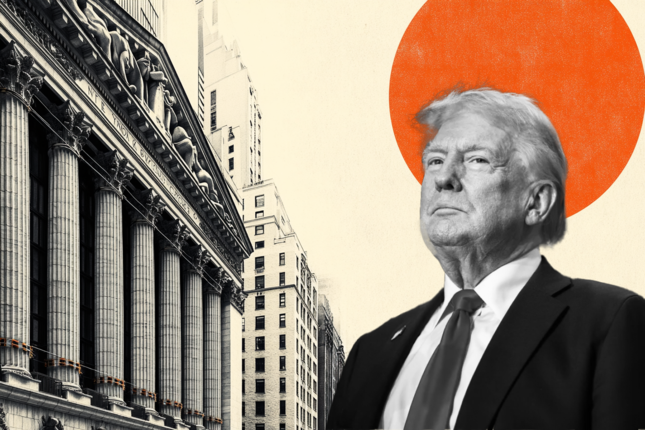- EUR/USD gains ground due to rising expectations of a Fed rate cut in September.
- Fed Chair Powell stated at the Jackson Hole Symposium, "The time has come for policy to adjust.”
- ECB official Olli Rehn stated that the recent slowdown in inflation bolsters the case for a rate cut next month.
EUR/USD extends its gains for the second session, trading around 1.1190 during the Asian session on Monday. This upside of the EUR/USD pair is attributed to the lower US Dollar (USD) following the dovish speech from the US Federal Reserve (Fed) Chairman Jerome Powell at the Jackson Hole Symposium on Friday.
Fed Chair Jerome Powell stated, "The time has come for policy to adjust." Although Powell did not specify when rate cuts would begin or their potential size, markets anticipate the US central bank will announce a 25-basis points rate cut at the September meeting.
Additionally, Philadelphia Fed President Patrick Harker emphasized on Friday the need for the US central bank to lower interest rates gradually. Meanwhile, Chicago Fed President Austan Goolsbee noted that monetary policy is currently at its most restrictive, with the Fed now focusing on achieving its employment mandate.
On the EUR side, European Central Bank (ECB) Governing Council member Olli Rehn said on Friday that the slowdown in inflation alongside weakness in the Eurozone economy strengthened arguments to lower borrowing costs next month, per Bloomberg. The growth outlook in Europe, especially manufacturing, is rather subdued, which enforces the case for a rate cut in September.
Additionally, Rabobank’s Senior FX Strategist, Jane Foley, remarked on Friday that the EUR/USD pair is expected to trade at 1.1200 on a three-month horizon. Foley noted that the recent breakout and the beginning of a new policy cycle for the Fed indicate that a new trading range is emerging. However, Foley also mentioned that if key US data released in early September comes in stronger than market forecasts, there could be potential pullbacks to around 1.1000 for the pair.
Euro FAQs
The Euro is the currency for the 20 European Union countries that belong to the Eurozone. It is the second most heavily traded currency in the world behind the US Dollar. In 2022, it accounted for 31% of all foreign exchange transactions, with an average daily turnover of over $2.2 trillion a day. EUR/USD is the most heavily traded currency pair in the world, accounting for an estimated 30% off all transactions, followed by EUR/JPY (4%), EUR/GBP (3%) and EUR/AUD (2%).
The European Central Bank (ECB) in Frankfurt, Germany, is the reserve bank for the Eurozone. The ECB sets interest rates and manages monetary policy. The ECB’s primary mandate is to maintain price stability, which means either controlling inflation or stimulating growth. Its primary tool is the raising or lowering of interest rates. Relatively high interest rates – or the expectation of higher rates – will usually benefit the Euro and vice versa. The ECB Governing Council makes monetary policy decisions at meetings held eight times a year. Decisions are made by heads of the Eurozone national banks and six permanent members, including the President of the ECB, Christine Lagarde.
Eurozone inflation data, measured by the Harmonized Index of Consumer Prices (HICP), is an important econometric for the Euro. If inflation rises more than expected, especially if above the ECB’s 2% target, it obliges the ECB to raise interest rates to bring it back under control. Relatively high interest rates compared to its counterparts will usually benefit the Euro, as it makes the region more attractive as a place for global investors to park their money.
Data releases gauge the health of the economy and can impact on the Euro. Indicators such as GDP, Manufacturing and Services PMIs, employment, and consumer sentiment surveys can all influence the direction of the single currency. A strong economy is good for the Euro. Not only does it attract more foreign investment but it may encourage the ECB to put up interest rates, which will directly strengthen the Euro. Otherwise, if economic data is weak, the Euro is likely to fall. Economic data for the four largest economies in the euro area (Germany, France, Italy and Spain) are especially significant, as they account for 75% of the Eurozone’s economy.
Another significant data release for the Euro is the Trade Balance. This indicator measures the difference between what a country earns from its exports and what it spends on imports over a given period. If a country produces highly sought after exports then its currency will gain in value purely from the extra demand created from foreign buyers seeking to purchase these goods. Therefore, a positive net Trade Balance strengthens a currency and vice versa for a negative balance.
Information on these pages contains forward-looking statements that involve risks and uncertainties. Markets and instruments profiled on this page are for informational purposes only and should not in any way come across as a recommendation to buy or sell in these assets. You should do your own thorough research before making any investment decisions. FXStreet does not in any way guarantee that this information is free from mistakes, errors, or material misstatements. It also does not guarantee that this information is of a timely nature. Investing in Open Markets involves a great deal of risk, including the loss of all or a portion of your investment, as well as emotional distress. All risks, losses and costs associated with investing, including total loss of principal, are your responsibility. The views and opinions expressed in this article are those of the authors and do not necessarily reflect the official policy or position of FXStreet nor its advertisers. The author will not be held responsible for information that is found at the end of links posted on this page.
If not otherwise explicitly mentioned in the body of the article, at the time of writing, the author has no position in any stock mentioned in this article and no business relationship with any company mentioned. The author has not received compensation for writing this article, other than from FXStreet.
FXStreet and the author do not provide personalized recommendations. The author makes no representations as to the accuracy, completeness, or suitability of this information. FXStreet and the author will not be liable for any errors, omissions or any losses, injuries or damages arising from this information and its display or use. Errors and omissions excepted.
The author and FXStreet are not registered investment advisors and nothing in this article is intended to be investment advice.
Recommended content
Editors’ Picks

EUR/USD under pressure below 1.0400 on persistent USD strength
EUR/USD remains deep in the negative territory below 1.0400 on Tuesday, erasing a portion of Monday's gains. The pair is undermined by risk aversion and the persistent US Dollar demand, fuelled by US President Trump's tariff threats.

GBP/USD stays below 1.2300 after UK employment data
GBP/USD stays under bearish pressure and trades below 1.2300 on Tuesday as the USD preserves its strength following US President Trump's tariff threats. The data from the UK showed that the ILO Unemployment Rate edged higher to 4.4% in the three months to November.

Gold trades at multi-month highs above $2,720
Gold gathers bullish momentum and trades at its highest level since early November above $2,720 on Tuesday. The benchmark 10-year US Treasury bond yield is down more than 1% below 4.6% following US President Trump's tariff threats, helping XAU/USD hold its ground.

Bitcoin fails to sustain the $109K mark after Trump’s inauguration
Bitcoin’s price steadies above the $102,000 mark on Tuesday after reaching a new all-time high of $109,588 the previous day. Santiment’s data shows that BTC prices quickly corrected, as social media showed major greed and FOMO among the traders in Bitcoin after President Donald Trump’s inauguration.

Prepare for huge US trade changes as Trump goes America first
You can be sure that big changes are coming as far as US trade is concerned, even if we didn't get any new tariffs on President Trump's first day in office. A comprehensive investigation into US trade relationships was initiated via a memorandum. China, Canada, and Mexico are clearly in the immediate firing line.

Trusted Broker Reviews for Smarter Trading
VERIFIED Discover in-depth reviews of reliable brokers. Compare features like spreads, leverage, and platforms. Find the perfect fit for your trading style, from CFDs to Forex pairs like EUR/USD and Gold.